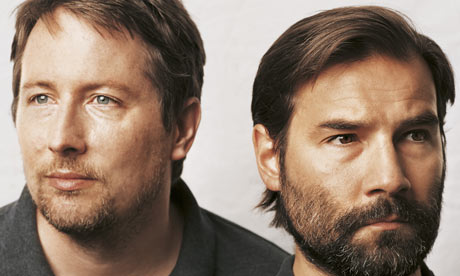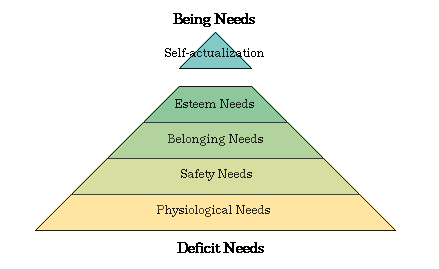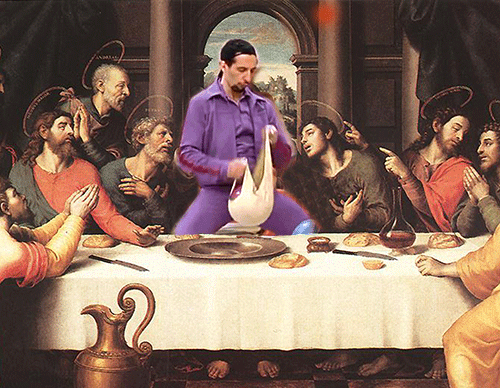
Sunday, 25 December 2011
Thursday, 22 December 2011
Annyeong, Kim Jong Il!

Note: Annyeong (안녕) means goodbye, and is not a reference to Arrested Development.
Yes, grief hits us all differently; for the internet, laughter is a common defence mechanism.
You may have seen videos of the frankly mad outbursts of public crying by the denizens of PyongYang:
The super-racist part of me wants someone to make a .gif of that and slap a caption on it about getting bad grades at school. That, or the nation running out of dog meat. I'll leave now...
Hard to know if it's true brainwash-induced sadness, or if surrounding guards have a gun to their kids' temple off-screen or something.
Apparently a good deal of the refugees who escaped the country at great risk to themselves still believe in their nation's leader and ideals, such is the power of their upbringing...
I think this is a good opportunity to post about an awesome video Vice did after riskily finding a way into N.K. I can't embed the video so link to part one here.
It's a truly mesmerising doc, and gives a fascinating insight into a country that is able to remain completely insular and controlled despite existing in the modern era of information technology. It's also ashamedly humorous to see the sheer po-facedness of their jingoism.
Not that I'm a typical Westerner laughing at how repressed and backward N.K. is, whilst falsely assuming that I live in a land of sober, unfettered liberty.
As Julian Assange said in a recent interview: "Censorship is a sign that your country's government is healthy, because it's still scared of the power of information". I'm paraphrasing, so here's the original interview/debate with Slavoj Zizek:
Friday, 16 December 2011
Meanwhile
Friday, 4 November 2011
Somewhere in the Midwest...

Wednesday, 19 October 2011
Fun links
Happy Birthday EpicMealTime! (YouTube)
Quantum Locking! (io9)
Teenage Mutant Ninja Noses! (Jezebel)
Chaos Cinema! (Filmdrunk)
Mind-fuck animation! (David OReilly)
Police Academy sound-fx guy's still got it! (Filmdrunk)
The Birth of Think Tanks! (This one is long, but excellent. BBC Adam Curtis)
Harrison Ford play Uncharted 3, and likes it! (SlashFilm)
"Jumping to Conclusions" bias in Schizophrenia, and Negative Capacity! (British Journal of Psychiatry)
Possibly the greatest Food blog of all time! (The Sneeze)
How the opening credits of Tintin should go! (SlashFilm)
8 Ironic Effects of Thought Suppression! (PsyBlog)
And Finally:
Some General Awesomeness! (Dark Roasted Blend)
Friday, 14 October 2011
Occupy Wall St


“What is the robbing of a bank compared to the founding of a bank?”― Bertolt Brecht
Last year, Americans began to owe more on their student loans then their credit cards, with student debt reaching the $1 trillion mark. Many have flocked to higher education during the down economy, only to find themselves still unemployed or underemployed.Perhaps a taste of things to come in the UK by the way... ;)

Part One
…2008 financial crash more hard earned private property was destroyed than if all of us here were to be destroying it night and day for weeks. They tell you we are dreamers. The true dreamers are those who think things can go on indefinitely the way they are. We are not dreamers. We are awakening from a dream which is tuning into a nightmare. We are not destroying anything. We are only witnessing how the system is destroying itself. We all know the classic scenes from cartoons. The cart reaches a precipice. But it goes on walking. Ignoring the fact that there is nothing beneath. Only when it looks down and notices it, it falls down. This is what we are doing here. We are telling the guys there on Wall Street – Hey, look down! (cheering).
In April 2011, the Chinese government prohibited on TV and films and in novels all stories that contain alternate reality or time travel. This is a good sign for China. It means that people still dream about alternatives, so you have to prohibit this dream. Here we don’t think of prohibition. Because the ruling system has even suppressed our capacity to dream. Look at the movies that we see all the time. It’s easy to imagine the end of the world. An asteroid destroying all life and so on. But you cannot imagine the end of capitalism. So what are we doing here? Let me tell you a wonderful old joke from communist times.
A guy was sent from East Germany to work in Siberia. He knew his mail would be read by censors. So he told his friends: Let’s establish a code. If the letter you get from me is written in blue ink ,it is true what I said. If it is written in red ink, it is false. After a month his friends get a first letter. Everything is in blue. It says, this letter: everything is wonderful here. Stores are full of good food. Movie theaters show good films from the West. Apartments are large and luxurious. The only thing you cannot buy is red ink.
This is how we live. We have all the freedoms we want. But what we are missing is red ink. The language to articulate our non-freedom. The way we are taught to speak about freedom war and terrorism and so on falsifies freedom. And this is what you are doing here: You are giving all of us red ink.
There is a danger. Don’t fall in love with yourselves. We have a nice time here. But remember: carnivals come cheap. What matters is the day after. When we will have to return to normal life. Will there be any changes then. I don’t want you to remember these days, you know, like - oh, we were young, it was beautiful. Remember that our basic message is: We are allowed to think about alternatives. The rule is broken. We do not live in the best possible world. But there is a long road ahead. There are truly difficult questions that confront us. We know what we do not want. But what do we want? What social organization can replace capitalism? What type of new leaders do we want?
Remember: the problem is not corruption or greed. The problem is the system that pushes you to give up. Beware not only of the enemies. But also of false friends who are already working to dilute this process. In the same way you get coffee without caffeine, beer without alcohol, ice cream without fat. They will try to make this into a harmless moral protest. They think (??? unintelligible). But the reason we are here is that we have enough of the world where to recycle coke cans…
Part Two
….Starbucks cappuccino. Where 1% goes to the world’s starving children. It is enough to make us feel good. After outsourcing work and torture. After the marriage agencies are now outsourcing even our love life, daily.
Mic check
We can see that for a long time we allowed our political engagement also to be outsourced. We want it back. We are not communists. If communism means the system which collapsed in 1990, remember that today those communists are the most efficient ruthless capitalists. In China today we have capitalism which is even more dynamic than your American capitalism but doesn’t need democracy. Which means when you criticize capitalism, don’t allow yourselves to be blackmailed that you are against democracy. The marriage between democracy and capitalism is over.
The change is possible. So, what do we consider today possible? Just follow the media. On the one hand in technology and sexuality everything seems to be possible. You can travel to the moon. You can become immortal by biogenetics. You can have sex with animals or whatever. But look at the fields of society and economy. There almost everything is considered impossible. You want to raise taxes a little bit for the rich, they tell you it’s impossible, we lose competitivitiy. You want more money for healthcare: they tell you impossible, this means a totalitarian state. There is something wrong in the world where you are promised to be immortal but cannot spend a little bit more for health care. Maybe that ??? set our priorities straight here. We don’t want higher standards of living. We want better standards of living. The only sense in which we are communists is that we care for the commons. The commons of nature. The commons of what is privatized by intellectual property. The commons of biogenetics. For this and only for this we should fight.
Communism failed absolutely. But the problems of the commons are here. They are telling you we are not Americans here. But the conservative fundamentalists who claim they are really American have to be reminded of something. What is Christianity? It’s the Holy Spirit. What’s the Holy Spirit? It’s an egalitarian community of believers who are linked by love for each other. And who only have their own freedom and responsibility to do it. In this sense the Holy Spirit is here now. And down there on Wall Street there are pagans who are worshipping blasphemous idols. So all we need is patience. The only thing I’m afraid of is that we will someday just go home and then we will meet once a year, drinking beer, and nostalgically remembering what a nice time we had here. Promise ourselves that this will not be the case.
We know that people often desire something but do not really want it. Don’t be afraid to really want what you desire. Thank you very much!
Thursday, 6 October 2011
DRIVE
I've been following Refn for a while now, ever since I
It's also great to see a gradual move from the gritty handheld aesthetic of the Pusher Trilogy to the highly-composed, glossy images he presents in Bronson and Drive. I think he's cleverly moved with the times, realising that the pared-down aesthetic worked well as a shocking counterpart to the high-gloss of more formulaic cinema in the 90s, but now that Hollywood has caught on to this it feels fake and as though realism is to be used as a technique rather than a form of expression.
I also think it's smart to portray violence using pulchritudinous imagery. In the past, this has been described as crypto-fascist and exploitative, fetishising violence for the purposes of manufacturing cool and superficial beauty (this is certainly the case with Zack Snyder's irritating masturbatory slow-mo shots of people being shot/punched/stabbed in the face etc.). Here, at least in my opinion, it's so clearly stylised that it renders the violent acts both absurd and shocking, like a knife puncturing a mickey mouse balloon filled with blood, a mixture of kitsch and sudden gore. This is very much reminiscent of the forays into sexual violence seen in Blue Velvet, where the Disney-like sheen of suburbia is peeled back to reveal primal erotic thrills bubbling underneath.
Most shocking in Drive is the soon-to-be infamous face-stomping scene. According to the Kermode podcast he consulted Gaspar Noe of Irreversible fame, where Albert Dupontel stoves in a man's face with a fire extinguisher. No cutaways. Apparently, they used a combination of traditional latex and CGI to give it the finishing touches...
I think it's unfair to make a comparison between Refn and Tarantino, as many have made. Yes, both directors lovingly reference the tropes and narratives of Hollywood genre films, and this certainly is a film concerned with cool. But, as I just spent several paragraphs frothing at the mouth about, there's a big difference between the two.
Gosling's performance is key here as he takes this cool archetype and injects it with a smidgen of borderline autism and extreme nervous tension, something he used to great effect in Lars and the Real Girl. Clint Eastwood certainly never rage-stomped a man's face in and then looked round to stare at his lady with an apologetic look of sorrow!
Here I can understand what Refn means when he describes the second half as "what he would do to protect his wife", as though it were a dirty but necessary job. Traditionally the cool nomad role is seen dishing out harsh but righteous justice, his strict moral code never really put into question. In those films there tends to be some event causing their code to slip briefly at the end, and is used to pithily highlight their humanity (see Le Samourai, and if you really have to, The American).
Here we have a cipher-like character who clearly seeks humanity, but a la Holden Caulfield, can't find it, retreating into a world where his strict code is for the sake of simplicity rather than some higher purpose. When he is finally thrust full-force into the world of humans, his behaviour, while reactive and potentially necessary, cannot be neatly integrated into the kitschy mini-utopia the romantic couple have nurtured during their courthip, and thus the Driver feels a loss of innocence and an exposure of his hidden beast, pushing his dainty belle away from his protective arms. This reminds me of the second half of the Deer Hunter, where the wheelchair-bound vietnam vet cannot face returning home to his wife for fear of disturbing the tranquil idyll of their American small-town existence with the trauma incurred during his tour o' Nam. Basically, just watch the entire Nicholson monologue at the end of A Few Good Men to get the whole "I'm the monster you secretly want me to be" thing.
LE ACTING
All the side characters are excellently played, and convey a richness and backstory with very little dialogue. Other Refn films have been more verbose, and its possible the cudos should go to screenwriter Hossein Amini, who I've literally never heard of (nor have I heard of any of his other screenwriting credits).
Albert Brooks is fantastic playing against type; I shall never look at that man's eyebrows the same way again. And as for Ron Perlman, well, I've been a fan of his ever since La Cite des Enfants Perdus.
Even the father of the cute-as-a-button boy that Gosling becomes surrogate protector to is given nuance in just a few choice lines. He's also very well played by Oscar Isaac, who's completely unrecognisable from his role as a massive douchebag in Robin Hood (his British accent fooled me!). His character is clearly a bit of an aggressive dick but smartly isn't reduced to a thuggish latino stereotype.
I'm not sure what irritates me so much about her. Perhaps it's because she plays such sweet winsome characters when clearly she's cynically dumbing herself down and is clearly as sharp as anything. This can be seen in the way she somewhat overcompensates for the fear of being mistaken for one of her characters in real life by coming across as ever so mature and well put together:
Tangents on frighteningly intelligent girl-women aside, I think I've made my point quite clearly here tonight: In opposition to the many critics whose primary conclusion about Drive was "It's great fun and looks good but that's about it", I feel that Drive has substance under the bonnet.
Thank you and goodnight.
Monday, 3 October 2011
I feel like this most mornings
Friday, 23 September 2011
Happiness Part One

A potentially subliminal nod to the release of von Trier's new film about being depressed and welcoming the end of the world, I've decided to tackle that elusive thing Americans aggressively pursue as part of their constitutional rights (even if it is seemingly reserved for "job creators"): Happiness.
What I am going to say about happiness (and its measurement), is hopefully more nuanced.
When asking research participants to report on their happiness, researchers usually provide at best a vague frame (‘In general…’). Judgements are still relative, and people presumably make a comparison between what they believe about themselves and what they believe about other people who are in their immediate vicinity or who are otherwise relevant. This may explain a pervasive finding, that most people rate themselves as somewhat above the midpoint of a happiness scale, whether they are multimillionaires in the United States (Diener et al., 1985) or homeless prostitutes in Calcutta (Biswas-Diener & Diener, 2001). These findings are usually presented as showing that ‘most people are happy’, but another way to describe them is to say that ‘most people judge themselves to be happier than they think other people are’ (cf. Diener & Diener, 1998).

and the latter referring to, well, some kind of suburban middle-class conception of a successful, meaningful life, whose emotional benefits keep us feeling safe and smug long after the middle-age realisation that the finality of death renders these achievements null and void has set in:

Obviously I'm exaggerating by saying that eudaimonic well-being (so scientific sounding!) is a wholly White Anglo-Saxon Protestant concept, but just look at the definition given by UPenn's Authentic Happiness research centre:
"Eudaimonic pleasure...pursuing personal growth, development of their potential, achieving personal excellence, and contributing to the lives of others"
And sure enough, both Seligman and Maslow are big figures, not just in positive psychology but even mental health. Seligman's concept of Learned Helpessness has been applied to models of depression within a behavioural psychology context, i.e. we face the world as autonomous rational individuals seeking to assert our agency, then seemingly insurmountable obstacles are gradually put in our way, and finally we are slowly beaten into despondency and hopelessness by life's cruel happy slapping.
Similarly Maslow's hierarchy of needs feeds into models of Recovery and Well-being in mental health. I recently went for a volunteer training day at Oxfordshire Mind and the organisers actually wrote out the hierarchy of needs on a white board to illustrate their view of Well-being...
What becomes evident is that throughout the literature and theories regarding happiness and well-being there lies the ever-present assumption that the self is the ultimate locus of all development and pleasure (even if helping others is valued as a self-actualising trait).
Where's the sense of community people? As George Costanza put it:
Not that I'm terribly self-sacrificing myself... But I certainly have a healthy aversion towards embracing the radical individualism that emerged in the West during the latter half of the 20th century.
Of course, individualism, particularly the concept of rational autonomy, is an older concept derived primarily from the Enlightenment philosophers (such as Kant), but it arguably found its scientific justification and mass adoption in the form of Nobel Prize winning Mathematician John Nash's Game Theory.
You remember who John Nash is right? Lovingly played by Mr. Rufty Tufty man Rusty Crowe in A Beautiful Mind? Yeah, apparently John Nash was kind of a dick in real life, and crucially a paranoid schizophrenic...
Adam Curtis' documentary The Trap tells his story beautifully; how Nash came up with an equation proving that given the option to keep what you have or to opt-in and run the risk of betrayal, the only rational solution is to be selfish.
This is best illustrated by the prisonner's dilemma:
Nash called it the "Fuck You, Buddy" game. Can you see why?
His paranoid self-interest proved enormously fashionable at a time when it really felt as though two world super-powers could blow each other up at any moment.
His work has had a profound effect on the Western world, along with Ayn Rand's philosophical justification of selfishness, giving impetus to the gradual domination of neorealism in international relations theory, neoliberalism in economic policy, and libertarianism in political philosophy.
Crucially for my story however, game theory has also had a huge influence on cognitive behavioural psychology in terms of what we think motivates us, what the targets of therapy are, and of course, what we think makes us happy...
Of course, I do realise the irony in that I began this long ramble explaining how happiness research has actually begun to lead us away from the cold financial incentives of yester-year's yuppies towards the more holistic, positive reinforcement motivators of today's behavioural economists, but nonetheless the focus on the self as an autonomous willful being trying to achieve its full potential still shines through:
Note that Bradley Cooper is fairly WASPy looking...
So what does this mean? That happiness is being Barney Stinson?

Well, not quite. What it means is that we've defined Happiness through the prism of Western liberal individualism, divorced from any political or economic context and thus rendering Happiness frustratingly dependent on the choices we make and not much else.
You see, we live in a "Post-ideological age" (or The End of History, if your name is Francis Fukuyama), whereby all other systems of government have failed and liberal capitalism is now the default background, a rational structuring of society that is pragmatic and objective, and thus requires no ideology. And since capitalism offers a level playing field, what is life and well-being but a series of rational choices that we must bear responsibility for?
Now, yes, this isn't true, and yes, we live in an apparently free society, and really our choices are undermined by economic and social inequalities, so that in effect our choices amount to superficial distinctions between market led options. But, going beyond this Marxist cliche, we are also presented with the pain of being burdened with an excess of choice whilst feeling that we don't have the proper knowledge to make the right ones:
In the "Marxist" version of this theme, the multiplicity of choices with which the market bombards us only serves to obfuscate the absence of any really radical choice concerning the fundamental structure of our society. There is, however, a feature conspicuously missing from this series: namely, the injunction to choose when we lack the basic cognitive coordinates needed to make a rational choice. As Leonardo Padura puts it: "It is horrific not to know the past and yet be able to impact on the future" ; being compelled to make decisions in a situation which remains opaque is our basic condition. We know the standard situation of the forced choice in which I am free to choose on condition that I make the right choice, so that the only thing left for me to do is make the empty gesture of pretending to accomplish freely what expert knowledge has imposed upon me. But what if, on the contrary, the choice really is free and, for this very reason, is experienced as even more frustrating? We thus find ourselves constantly in the position of having to decide about matters that will fundamentally affect our lives, but without a proper foundation in knowledge. To quote John Gray again: "we have been thrown into a time in which
everything is provisional. New technologies alter our lives daily. The traditions of the past cannot be retrieved. At the same time we have little idea of what the future will bring. We are forced to live as if we were free" - Zizek, First as Tragedy, Then as Farce
Hence we feel the need to turn to "wise" gurus that can help us make better choices and assert our finely crafted "selves" onto the world. Here's a delightful quote (conveniently found in the Wikipedia page for Self-Help):
The conservative turn of the neoliberal decades also meant a decline in traditional political activism, and increasing "social isolation; Twelve-Step recovery groups were one context in which individuals sought a sense of community...yet another symptom of the psychologizing of the personal"[15] to more radical critics. Indeed, "some social theorist[sic] have argued that the late-20th century preoccupation with the self serves as a tool of social control: soothing political unrest...[for] one's own pursuit of self-invention."D'ya geddit? Basically, by abstracting psychological and personal problems from their socio-political context and re-situating them within the self, the burdern falls to the individual to take responsibility for their lack of agency and happiness. This is then propped up by a self-perpetuating industry of self-help books, support groups, and New Age spirituality workshops emphasising self-development and healing. Just look at the current Conservative Government's attempts to take the nation's temperature by measuring Happiness...
But hey, who am I to judge. I believe in positivistic, evidence-based approaches to the study of human behaviour. Surely in principle there's nothing wrong with wanting to measure what makes people happy, and then trying to encourage an evidence-based approach to policy-making that maximises a country's happiness?
Perhaps we can simply, through the application of scientific methods, find the neural and genetic signatures of happiness and organise our society around that to create an objective social morality that would be one-size-fits-all. At least, this is what atheist extraordinaire Sam Harris believes. Brave New World anyone?
If you've actually made it this far, I salute you. This is probably too much for anyone on the internets to ever read, so I'll break here and rejoin this topic in PART DEUX!

Thursday, 22 September 2011
The Story of Film
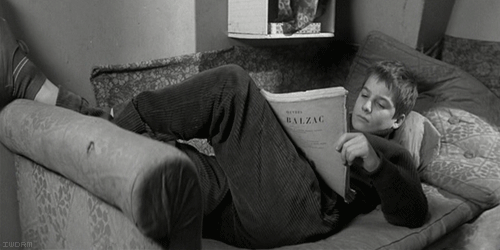


Monday, 12 September 2011
Mark Kermode will be pleased
 What will Hollywood do once Top Gun is re-released fully converted to 3D, as there'll no longer be any point to making films after the arrival of cinema's apotheosis? What do you mean it's a jingoistic, crypto-fascist, vapid cheesefest with homoerotic undertones!
What will Hollywood do once Top Gun is re-released fully converted to 3D, as there'll no longer be any point to making films after the arrival of cinema's apotheosis? What do you mean it's a jingoistic, crypto-fascist, vapid cheesefest with homoerotic undertones!Lulz aside, doesn't it just smack f desparation, after the lacklustre performance of 3D this Summer (more people went to see the major tentpole blockbusters in 2D than 3D) that they're now turning to
More on the topic in general here.
Not that I'm personally against 3D. I actually find that 3D works well for me, although my wife says it blurs and darkens the screen for her, which sounds like she might just be wearing her sunglasses... (I've included this "joke" to check if she actually reads this, how sad).
The sublime Coraline made excellent use of 3D for the Vertigo-ish pathway-to-another-dimension sequences, Avatar was an enjoyable spectacle, and, I'm ashamed to admit it, but I rather liked the cash cow/kids film Bolt in 3D.
Also, it's worth noting that not one but two aging German art-house auteurs (Wim Wenders and Werner Herzog) elected to shoot documentaries in 3D, although I'm not sure how much they did for 3D's profile overall (General Public: - German art-house docs in 3D? Yes please! Ooh, the encounters with ecstatic truth within nature jump off the screen right out at you!).
Both Cave of Forgotten Dreams and Pina are great and looked as though they made good use of the technology. I say looked, because the only cinemas playing these two films near me lacked the apparatus!
It's also important to remember that a run of big 3D tentpole flicks are just around the corner (Spielberg's Tintin, Scorcese's Hugo, and lest we forget, Jackson's The Hobbit), which I believe are all being shot in 3D as opposed to being converted in post-prod, which is considered a no-no by 3D enthusiasts (like James Cameron). In fairness, I can usually tell the difference between the two and find post-prod conversion to be fairly crap.
Either way, they still need to sort out the ridiculous over-pricing of 3D tickets. They actually increased the price of 3D tickets after its apparent "popularity" last year; the people responsible may very well now be licking their wounds and considering a lowering of prices in order to protect their investments....
In the end, I don't really care what happens to 3D, I just thought it was funny that Goose's death will now be enjoyed in three dimensions.
Here's a blog post on why 3D is scientifically stupid.
As Walter Murch puts it:
So: dark, small, stroby, headache inducing,
alienating. And expensive. The question is: how long will it take people to
realize and get fed up?
Friday, 9 September 2011
Raul Ruiz 25 July 1941 – 19 August 2011
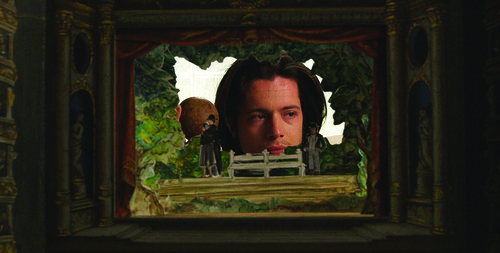
Mysteries nevertheless stands as a perfect closing testament – a stately meditation on fate, memory and the possibility that our lives may be bewitching labyrinths of fact and fabulation.
Thursday, 8 September 2011
[Square brackets are great]
Aussies, Psychos, and Adam & Joes Cont.

Damn, clearly my prescience is an untapped supernatural resource and I should become a financial speculator, where I'd probably end up contributing to the next market bubble in Asia or ruin some third world country that the IMF will then bleed for loan repayments over the next 30 years...
No sooner than one of my inchoate rambles hits the interwebs on the topic of Psychopathy, BBC Horizon does a special on what makes us good or evil, and how Professor James Fallon (picture above) found out he fit the profile for a psychopath, and decided to research why it is he hasn't so far turned any women into lampshades.
Check it out here.
Wednesday, 7 September 2011
Just had to
Aussies, Psychos, and Adam & Joes


And then one day he called me and he had been watching Tom Cruise on David Letterman, and he just had this very intense friendliness with nothing behind the eyes, and he was really taken with this energy


Persistent – consistent and inflexible pattern of coping over time
Pervasive – can be seen across different situations such as work, family and social relationships, and not just specific to offending
Problematic – has negative impact for themselves and/or others
